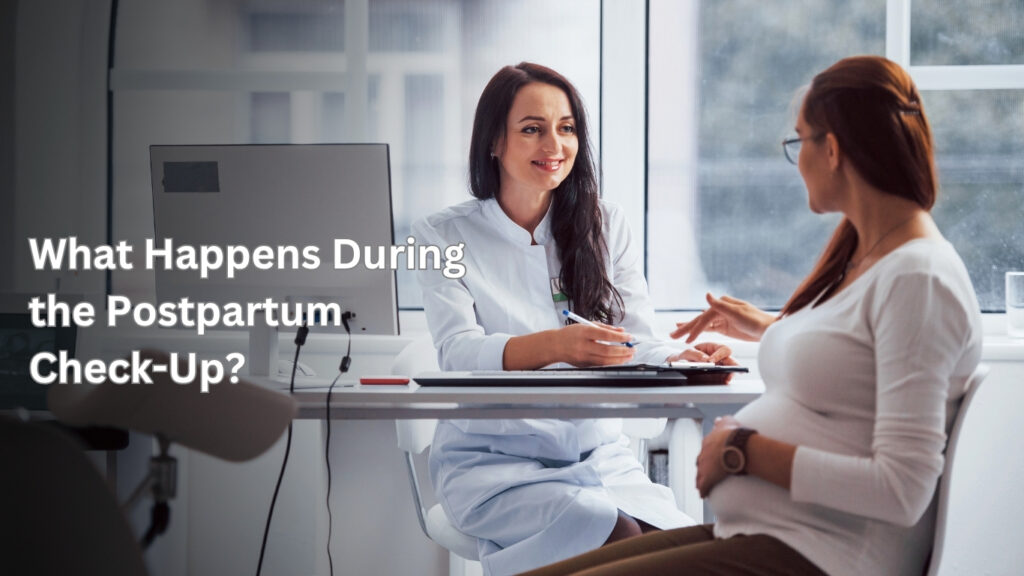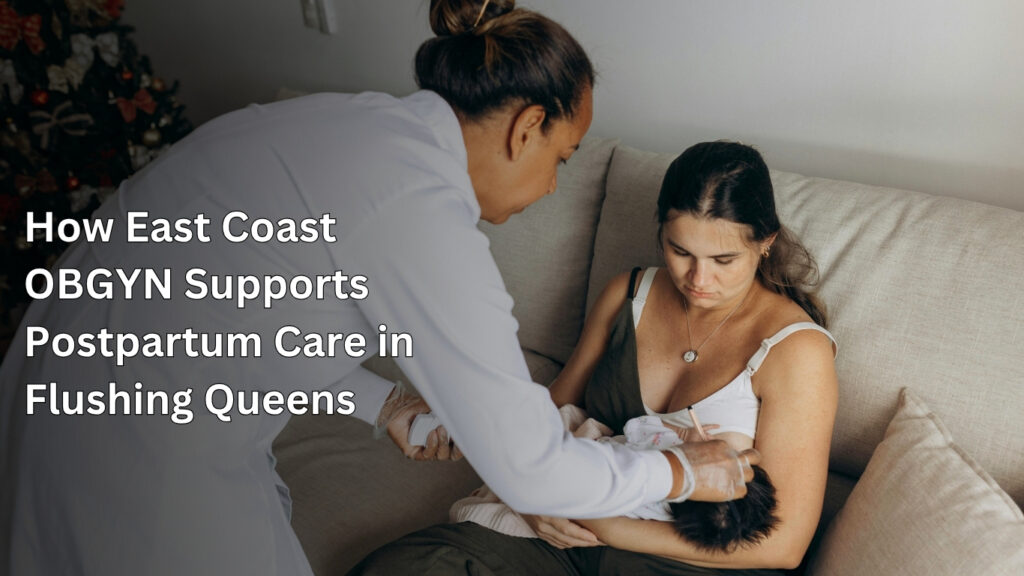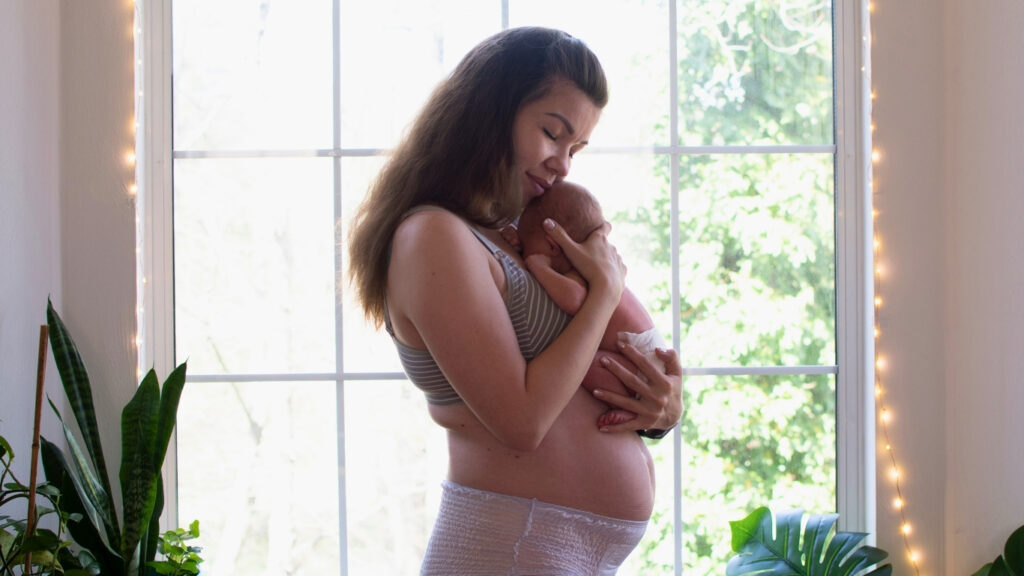Why Postpartum Care Is Just as Important as Prenatal Care
While much focus is placed on prenatal care, the period after childbirth is just as critical for a mother’s health and well-being. From physical healing to emotional adjustment, postpartum care in Flushing Queens ensures that new moms get the support they need during this transformative time.
At East Coast OBGYN, we are committed to walking with you through every stage of your motherhood journey. Our team provides comprehensive care after delivery to help you recover, adjust, and thrive both physically and emotionally.
The First Few Days: Immediate Post Birth Recovery
In the first few days after birth, your body begins a major recovery process. Whether you’ve delivered vaginally or via C-section, your body is healing from labor and adjusting to a new normal.
What to Expect
In the hospital, nurses and doctors monitor your bleeding, vital signs, and pain levels. Once home, post birth recovery continues with attention to rest, hydration, and wound care.
Vaginal Birth vs. C-Section Recovery
- Healing after vaginal birth often involves managing perineal discomfort, swelling, and mild bleeding.
- For those who’ve had a cesarean, C-section recovery tips include managing the incision site, limiting physical exertion, and avoiding heavy lifting during the first few weeks.
How Soon Should You See Your OBGYN After Delivery?
It’s recommended to schedule your first OB postpartum checkup within 6 weeks of delivery. However, earlier appointments may be necessary, especially if you’re experiencing complications or had a C-section.
Services at an OBGYN Clinic in Flushing Queens
At our OBGYN clinic in Flushing Queens, services include wound care, mental health screening, breastfeeding support, and contraceptive counseling. The first visit plays a vital role in identifying any issues early and ensuring your recovery is progressing well.

What Happens During the Postpartum Check-Up?
Your OBGYN doctor will evaluate your physical and emotional recovery during this appointment.
Physical Recovery Evaluation
- Uterine size and healing progress
- Incision or perineal tear inspection
- Vaginal discharge and bleeding levels
Mental Health Screening
Postpartum depression and anxiety are more common than many realize. Your doctor may ask about your mood, sleep patterns, and emotional well-being.
Birth Control and Breastfeeding Discussion
Your doctor may also discuss safe birth control options and offer breastfeeding support, including guidance on latching, milk supply, and nipple care.
Physical Recovery: Bleeding, Healing & Rest
How Long Does Postpartum Bleeding Last?
Postpartum bleeding, or lochia, usually lasts 4 to 6 weeks. It gradually changes from bright red to pink, then to a yellow-white discharge before stopping.
Tips for Healing After Vaginal Birth
- Use ice packs and sitz baths for perineal relief
- Stay hydrated and maintain a fiber-rich diet
- Avoid long periods of standing or strenuous activity
C-Section Recovery Tips
- Keep the incision clean and dry
- Avoid lifting anything heavier than your baby
- Support your abdomen with a pillow when coughing or sneezing
Emotional and Mental Health After Delivery
What Emotional Changes Are Normal?
Hormonal changes after childbirth can cause mood swings, tearfulness, and fatigue often referred to as baby blues. These usually resolve within two weeks.
Recognizing and Addressing Postpartum Depression
If symptoms like persistent sadness, irritability, loss of interest, or difficulty bonding with your baby persist, you may be experiencing postpartum depression. It’s important to speak to your healthcare provider right away. Help is available, and you don’t have to go through it alone.
Returning to Normal Activities: Exercise, Sex & Daily Routines
When Can I Resume Exercise and Intimacy?
Most women can begin light exercise around 6 weeks postpartum, but this varies depending on your delivery type and healing process. Intimacy should also wait until after clearance from your OBGYN doctor.
Listening to Your Body During Recovery
Don’t rush your recovery. Ease into daily routines, ask for help when needed, and prioritize rest. Every mother heals at her own pace.

How East Coast OBGYN Supports Postpartum Care in Flushing Queens
At East Coast OBGYN, we provide compassionate and personalized postpartum care in Flushing Queens. Our services include:
- Routine OB postpartum checkups
- Post-surgical care and wound monitoring
- Emotional and mental health screening
- Breastfeeding guidance
- Ongoing access to your OBGYN doctor
Staying connected with your care team ensures that you receive ongoing support long after the baby is born.
Final Thoughts: Prioritizing Your Health After Baby
Postpartum recovery is not just physical it’s emotional and mental, too. Prioritizing your health is one of the best ways to care for your new baby. With the right guidance, support, and medical care, you can navigate this stage with confidence. East Coast OBGYN is here to support you every step of the way.
FAQs
How soon should I see my OB-GYN after delivery?
Most women should see their OB-GYN within 6 weeks of giving birth, but earlier visits may be recommended depending on your delivery and any complications.
What happens during the postpartum check-up?
Your doctor will assess your physical healing, check for signs of postpartum depression, discuss birth control, and address breastfeeding or newborn care concerns.
How long does postpartum bleeding last?
Typically, postpartum bleeding lasts 4–6 weeks and gradually changes in color and flow.
When can I resume exercise?
Most women can begin gentle activity around 6 weeks postpartum, but always consult your doctor first.
What emotional changes are normal?
Mood swings, anxiety, and tearfulness are common in the first two weeks. If symptoms persist, it may indicate postpartum depression.
What is postpartum depression?
It’s a serious but treatable condition that involves prolonged sadness, loss of interest, irritability, or difficulty bonding with your baby. Early treatment leads to better outcomes.

